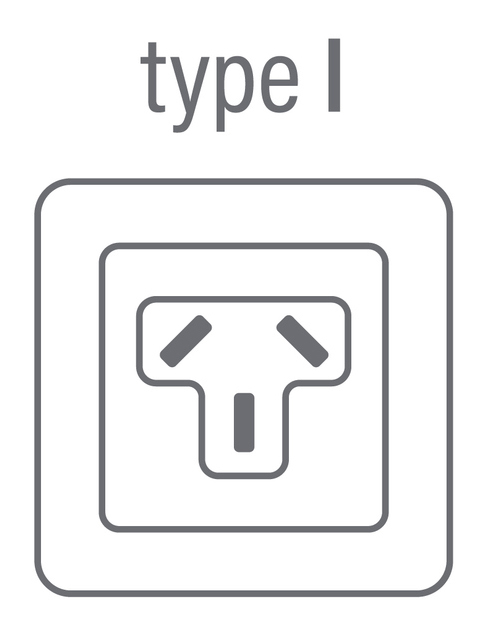New Zealand
![]()
TRAVEL INFORMATION QUICK LINKS
Navigate your travels seamlessly with vital information on passport and visa requirements, plug types, currency exchange, and other essential details to make your journey hassle-free.
Stay informed and prepared for your journey with these essential health and safety tips to ensure a smooth and worry-free travel experience.
A handy guide offering suggested tipping amounts to enhance your travel experiences with ease and respect for local customs.
Prepare for your adventure with insights into the weather of your destination, offering valuable information to help you pack and plan accordingly for a comfortable and enjoyable journey.

ESSENTIAL TRAVEL INFORMATION
PASSPORT REQUIREMENTS
- Passport must be valid for three months beyond intended stay.
VISA REQUIREMENTS
- All travelers and all cruise travelers (excluding Australians), must apply for a New Zealand Electronic Travel Authority (NZeTA) before travelling to or transiting through New Zealand.
- Travelers are recommended to apply at least 3 days prior to departure.
- NZeTA lasts up to 2 years and costs NZD $17.00 for mobile application requests and NZD $23.00 for web browser requests.
- An International Visitor Conservation and Tourism Levy (IVL) is also payable at the time of application and costs NZD $35.00. Once paid, the IVL will last as long as the ETA is valid.
- Please note: Because these fees cannot be included when ticketing air or purchasing land services, it is the traveler's responsibility to obtain the ETA and IVL prior to travel.
- Read more at: US Department of State Profile for New Zealand
LANGUAGE
- English is the de facto official language of New Zealand.
- However, Māori and New Zealand Sign Language are the only official languages codified into law.
CURRENCY
- The unit of currency in New Zealand is the New Zealand dollar (NZ$).
- Major credit cards are widely accepted throughout New Zealand.
- New Zealand uses a "chip and pin" system for credit and debit cards. Please ensure that any cards you intend to use while traveling have a computer chip and pin assigned to avoid delays in checking out at shops and restaurants.
TIME ZONE:
GMT +12 (GMT +13 during daylight saving time)VOLTAGE:
230/240 Volts AC, 50HzPLUG TYPE:
New Zealand uses plug type I.
IMPORT & EXPORT RESTRICTIONS
Free import for passengers 17 and over include:- 200 cigarettes or 50 cigars or 250 grams of tobacco
- 3 bottles of alcohol each no more than 1125 ml of spirits and 4.5 liters of wine or beer
- Fur apparel that has been owned and used for 12 months
- Amounts of NZ $10,000 or more must be declared on arrival and departure.
- Certain feathers and other animal products with a sacred connection to Māori culture may not be owned by non-Māori or exported from New Zealand.
- For detailed import and export regulations, please consult the IATA Travel Centre.

TRAVELERS’ HEALTH & SAFETY
REQUIRED IMMUNIZATIONS
- Please visit the CDC.gov website for recommended immunizations to visit New Zealand.
OTHER SAFETY NOTES
- The crime rate in New Zealand is relatively low compared with the rest of the world. However, petty theft in touristic areas occasionally occurs.
- New Zealand is part of the Pacific "Ring of Fire" and there are active volcanoes in the country. In addition, earthquakes, cyclones, and tsunamis are a risk in New Zealand. Tourists can use GeoNet and the Emergency Mobile Alert app for up-to-date information.
- New Zealand is one of the world's adventure capitals. Use common sense when participating in adventure activities like climbing, bungee jumping, and kayaking. Make certain that your travel insurance policy covers your sport when purchasing.
- Strict regulations are imposed on importing anything that may damage New Zealand's delicate island ecosystem. Please visit the State Department's profile for New Zealand for more information.
- Those with heart conditions should be aware that they might be traveling at high elevations, above 7,000 feet, depending on their itinerary. Please consult your doctor to determine if high altitude travel is safe for you.
LOCAL LAWS AND CULTURAL CONSIDERATIONS
- Accessibility: The law in New Zealand prohibits discrimination against individuals with disabilities, and this law is enforced. New buildings must be constructed with accessibility systems, but most buildings in use in New Zealand predate this requirement. Therefore, access may be limited in some locations.
- Prescription drugs: Please contact the embassy for specific questions about your prescription medications. A doctor's note is recommended for all prescription drugs being brought into the country, in addition to the carrying the medications in their original packaging with prescription details. DO NOT attempt to bring cannabis-derived products into or out of Kenya.

GRATUITIES
- Porter: NZD 2 per bag
- Guide – full day: NZD 40 per day
- Guide – half day: NZD 20 per day
- Driver – full day: NZD 20 per day
- Driver – half day: NZD 15 per day
- Lodge staff: NZD 30 per day
- Boat crew: NZD 20-40 per day

WEATHER
- North Island: Average temperatures range from 20°C to 30°C (68°F to 86°F), with some areas in the interior reaching higher temperatures.
- South Island: Generally slightly cooler than the North Island, with average temperatures ranging from 15°C to 25°C (59°F to 77°F).
- North Island: Temperatures gradually cool down, with averages ranging from 15°C to 25°C (59°F to 77°F).
- South Island: Cooler temperatures, with averages ranging from 10°C to 20°C (50°F to 68°F).
- North Island: Winter temperatures range from 5°C to 15°C (41°F to 59°F), with some inland areas experiencing colder temperatures.
- South Island: Colder temperatures, with averages between 0°C and 10°C (32°F to 50°F). Inland areas and mountainous regions may experience snowfall.
- North Island: Temperatures begin to rise, ranging from 10°C to 20°C (50°F to 68°F).
- South Island: Spring temperatures range from 5°C to 15°C (41°F to 59°F), with snowmelt in the mountainous areas.